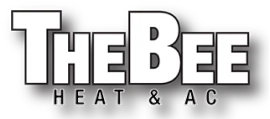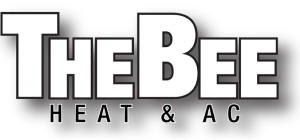Furnace maintenance is one of the needs of the hour that most people neglect until winter hits. If you notice your furnace blowing cold air, you must look for the potential causes and fix them in time.
On This Article
hide
1)
5 Potential Reasons A Furnace Blowing Cold Air
1.1)
1: Your Furnace Isn’t Warmed Up Yet
1.2)
2: Furnace Filter is Dirty
1.3)
3: Clogged Condensate Line
1.4)
4: Blocked Air Vents
1.5)
5:Thermostat Settings
2)
Reliable Furnace Repair in Colorado
3)
FAQs
3.1)
How do you reset a furnace that blows cold air?
3.2)
Why is my furnace blowing but having no heat?
3.3)
Why is cold air coming out of my heating vents?
If you notice a furnace blowing cold air in your home, this is a sign of an issue with your gas supply, air filters, condensate lines or flame sensor. Many of these issues can be diagnosed with professional help from an HVAC expert.
A broken furnace is a stressful condition that calls for repairing or replacing components. Many of these issues occur for various reasons, from clogging condensate to untidy filters. Once you know how to troubleshoot, why it happens, and how to avoid such situations, you can diagnose them early.
So, let’s discuss the possible causes of a furnace blowing cold air and tricks to fix these issues on your own. Furthermore, The Bee Heat & AC has many solutions, from yearly furnace maintenance to furnace repair services.
Contact us today and let our HVAC experts diagnose the root cause and prescribe possible and affordable solutions for your heating system needs.
5 Potential Reasons A Furnace Blowing Cold Air
A furnace operates by warming the heat exchanger before blowing the hot air. The heat exchanger is designed with metal coils that absorb, store and transfer heat from one area to another.
A heater does not operate alone, as two systems work together. One is the heater itself, and the other is associated hardware such as thermostats, switches and wires. Any malfunction between these two systems leads to problems drawing proper hot air.
If you have a malfunctioning furnace, several reasons are causing this. Let’s dig into the top reasons that can cause a malfunction in your furnace.
1: Your Furnace Isn’t Warmed Up Yet
Predicted winter storms and cold air rituals can cause panic on chilly days. Be mindful if you are turning on your furnace this season for the first time. Wait for several minutes to let it warm up thoroughly.
If your furnace continues blowing cold air, this is the first sign that your furnace has some issues and needs immediate attention.
It doesn’t happen instantly and requires time to warm up and get rolling. At this point, there is a chance that your furnace will blow cold air. So, wait until the stove warms up correctly and check if it is still blowing cold air.
If the cold air continues, this is a sign that your furnace needs a complete inspection. In such a case, look forward to an HVAC expert and let them do their job.
2: Furnace Filter is Dirty
The air filters catch the dust and debris from the environment and get clogged easily. It makes them malfunction as there is no proper airflow.
It will block incoming air from your gas furnace. This is why the air filters in the HVAC systems and air conditioners need to be changed regularly.
The most common signs of a dirty air filter include prolonged heating cycles, overheating, etc. A clogged filter limits the airflow to your furnace and can cause overheating or blowing cold air in winter. When the hot air has nowhere to go, there are higher chances of the furnace overheating and starting to blow air.
Further, thoroughly inspect all alternative causes for a furnace blowing cold air. We advise replacing the soiled air filter to re-establish proper airflow within your residence.
Check the air filters to see if they are clogged.
Remove the dirty filter and replace it with a new one.
Check the Merv rating to make sure it is not too restrictive. MERV 8 is typically the best.
HVAC experts advise to change the air filter every 90 days. Moreover, it is a low-maintenance tip to prevent the furnace from breaking down. So, make sure to change the filters regularly without any delay.
3: Clogged Condensate Line
A condensate line is an essential furnace component that efficiently moves the water away from the furnace. The condensate line clogs and can trigger the pressure switch, which shuts down the furnace.
Clearing the condensate line prevents ignition in the furnace, allowing only the cool air to pass through the vents. An HVAC technician can quickly diagnose this issue and can aid by removing the moisture.
4: Blocked Air Vents
A furnace operates well when all its components are working efficiently. In addition, it needs an adequate airflow for proper functioning.
Blocked or clogged air vents hinder their ability to draw sufficient airflow, which results in furnace overheating and tripping of high-limit switches. It causes cold air to blow.
Blocked air vents must be opened to ensure a furnace has adequate airflow and to prevent overheating. Additionally, an HVAC technician can quickly help in such a situation by unblocking the air vents and improving the airflow.
5:Thermostat Settings
A thermostat makes our life easier. One should look into the thermostat settings if the furnace is malfunctioning. If you feel the heater or furnace is blowing cold air, check that your thermostat setting is ‘Auto,’ not ‘On.’
A cold airflow is possible when the thermostat setting is on, which means it blows air even if the furnace is not running. Switch the settings to Auto to ensure the furnace will run only during the standard heating process.
Reliable Furnace Repair in Colorado
If you notice a furnace blowing cold air at night or in the daytime and need help figuring out why, this is your call to hire an HVAC professional.
Contact us online, and our technicians will offer comprehensive HVAC repair and replacement services for your heating systems.
Moreover, you can trust us to provide all your residential or commercial annual maintenance services in your local area.
Call us, and we will send a team of technicians to determine why your furnace blows cold air. We will ensure you enjoy a warm and cozy environment this season.
FAQs
How do you reset a furnace that blows cold air?
To reset the furnace:
Turn off the power and wait a few minutes.
Make sure that it turns off all the functions.
After a few minutes, turn the switch to “ON.”
Why is my furnace blowing but having no heat?
Check the thermostat settings first. There are chances that your thermostat might be accidentally set to “Cool” or fan-only option rather than “Heat” mode, hence resulting in blowing cold air.
Why is cold air coming out of my heating vents?
There are several reasons your vents are blowing cold air, such as your thermostat being set in carpooling mode or malfunctioning your heating system. Other reasons include blocked air vents, clogged condensate lines and more.

